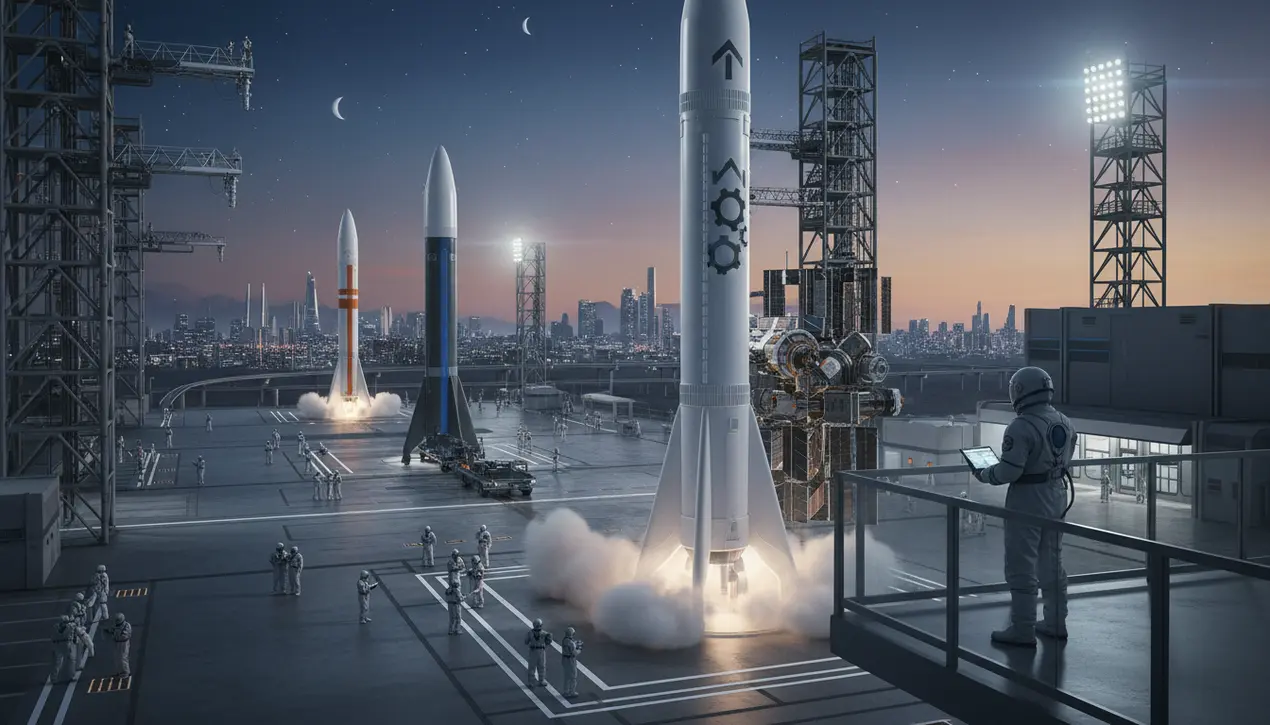
Sciencespace & astronomyNASA Missions
Private Space Stations Race Heats Up as ISS Nears Retirement
TH
Thomas Green
5 hours ago7 min read3 comments
The clock is ticking on one of humanity's most ambitious orbital outposts, NASA's International Space Station, slated for retirement in 2030, and in its wake, a new frontier of capitalist competition is erupting in the vacuum of low-Earth orbit. American aerospace firm Vast has now thrown its hat into the ring with Haven-1, a commercially developed mini-station targeting a launch as early as May 2026, joining a frenetic race that includes projects from Jeff Bezos’s Blue Origin, Northrop Grumman, and a separate venture led by Axiom Space.This isn't merely a replacement program; it's a fundamental paradigm shift from government-led exploration to a private-sector gold rush, echoing the early days of aviation or the dot-com boom, but with stakes that are literally astronomical. Andrew Feustel, a former NASA astronaut now advising Vast, emphasizes the design philosophy behind Haven-1, which is engineered not just for utility but for crew comfort, a critical consideration for the future space tourists and professional researchers who will inhabit these metallic cylinders.With a planned three-year operational lifespan, the module is intended to host successive crews of four astronauts at a time, a cadence that underscores the commercial ambition to create a sustainable, revenue-generating presence in space. The technical and financial hurdles are immense, of course, involving everything from perfecting advanced life support systems that can operate autonomously for years to developing reliable and cost-effective crew and cargo transportation, a market where SpaceX's Dragon capsules and potentially other entrants will play a pivotal role.The broader context here is the maturation of the entire commercial space ecosystem, a movement championed for decades by visionaries like Elon Musk with his Mars-oriented vision for SpaceX, which has successfully demonstrated that private companies can achieve what was once the exclusive domain of superpower nations. The retirement of the ISS, an international collaboration that has served as a unparalleled laboratory for microgravity research for over two decades, creates both a void and an opportunity.It forces the question: what comes next? The answer, it seems, is a constellation of private habitats, each potentially serving different markets—from sovereign astronauts from nations without their own space programs, to pharmaceutical companies conducting sensitive material science experiments, to the ultra-wealthy seeking the ultimate vacation. The potential consequences are profound, ranging from the democratization of access to space to the risk of creating a cluttered, competitively secretive orbital environment.This transition also raises complex questions about orbital traffic management, space law, and the regulatory frameworks that will be needed to govern these new corporate city-states in the sky. The success of ventures like Vast's Haven-1 will depend not only on their engineering prowess but on their ability to forge a viable economic model, proving that there is more to the final frontier than national prestige—that there is, in fact, a business to be built amongst the stars, a next giant leap driven not by flags and footprints, but by balance sheets and market share.
#SpaceX
#Vast
#Haven-1
#private space station
#ISS retirement
#commercial spaceflight
#featured
Stay Informed. Act Smarter.
Get weekly highlights, major headlines, and expert insights — then put your knowledge to work in our live prediction markets.
Related News
Comments
Loading comments...
© 2025 Outpoll Service LTD. All rights reserved.